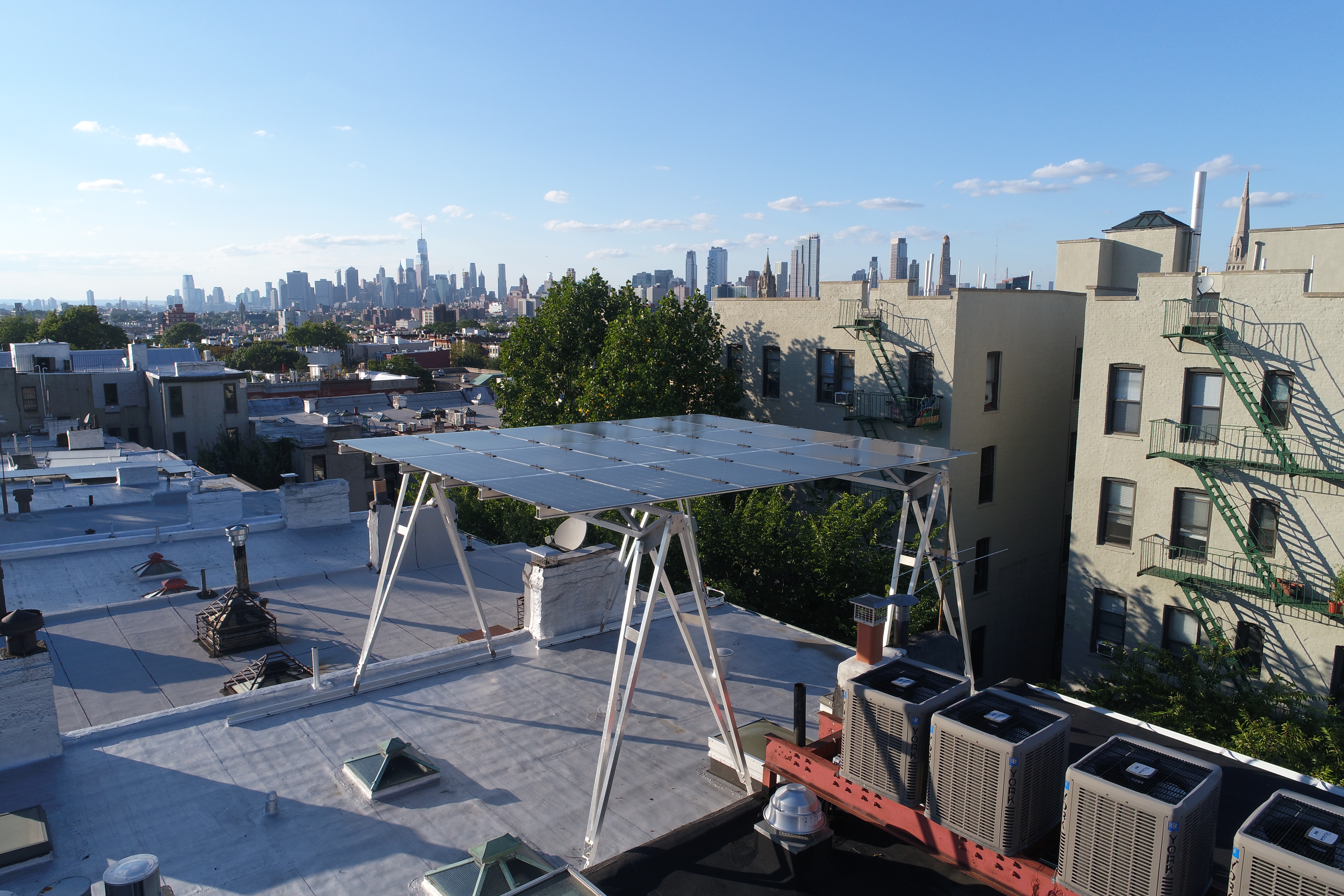George Bush Wants My Family to be Homeless
We have to admit we’ve been trying our best to block out the news over recent weeks of President Bush’s proposal to do away with the home mortgage deduction–we get a pit in our stomach whenever we think about it. Like many recent purchasers of homes in hot coastal markets (which, by no coincidence are…
We have to admit we’ve been trying our best to block out the news over recent weeks of President Bush’s proposal to do away with the home mortgage deduction–we get a pit in our stomach whenever we think about it. Like many recent purchasers of homes in hot coastal markets (which, by no coincidence are teeming with Liberals), elimination of this tax break would have a fairly drastic effect on our ability to stay in our home.
The pundits are talking about how such a change would bring home values down by 10-20%, but we think they are only taking into consideration the change in demand; in markets like New York, where many people have stretched over recent years to buy a home, the result could be much more dramatic on the supply side, as thousands of families could find themselves in the position of being forced sellers. The definitions of “rich” used to set the minimum hurdle rates for the small deductible portion of a mortgage that would remain are woefully out-of-whack with reality in cities like New York where most people spending $1 million on a home are far from wealthy. The larger impact on the economy–from a decline in real estate tax revenue to population decline–could be devastating under that scenario.
Let’s say someone earning $180,000 a year ($15,000 a month pre-tax, maybe $9,000 a month after) purchased a house at some point in the last few years for $1,250,000, putting down $250,000 and taking a $1 million mortgage. Let’s also say she’d gotten a 6%, 30-year mortgage, making her monthly payment roughly $6,000. For the sake of simplicity, let’s say taxes and maintenance, etc., add up to another $1,000.) Under current rules, her after-tax housing expense would be more like $5,000 than $7,000; the proportions get even more extreme if she has some rental income–maybe $3,500 versus $5,500. The difference in what’s left over to pay for groceries, utilities, tuitions, etc. is $5,500 versus $3,500–huge when you’re talking about a family of 4 or 5.
Now, we don’t think there’s any defensible intellectual reason that home ownership should enjoy the privileged status it does in our tax code, but to change the rules of the game at this point when millions of people have made the largest financial decision of their lives based on one set of ground rules would be a bait-and-switch of monster proportions. Some experts say the chances of these changes getting through are low, but, in the meantime, we’re going to have to go back to living in denial. The alternative is too much of a downer.
Goodbye, My Sweet Deduction [NY Times]





There is no grandfathering, but rather a phase out of the deduction and its replacement by credit over a 5 year period. I am reading from the recommendations. http://www.taxreformpanel.gov/
Anon 10:26 (why don’t you guys at least just make up a screen name and stick with it–so much easier!),
You are forgetting the significant role that rental income plays in one’s ability and decision to make a purchase like that. $1500 a month in rental income pays for $250,000 of the mortgage…Not saying many of us haven’t pushed the limits in our effort to escape a cramped urban existence, but if you have rental income and locked in a long-term mortgage because you planned to live there for a long time, it’s not as crazy as you suggest.
I’ve seen the reference to the grandfathering of existing home owners also.
As for the elimination of AMT, that would be great, but there is also a proposal to eliminate federal tax deduction for State and Local income taxes paid. If you are hit by the AMT, you are not able to deduct state and local taxes from your federal taxes. To get rid of AMT and get rid of the State and Local tax deduction would be a double whammy for those affected by the AMT. Again this would disproportionately affect blue states where incomes are high and there are high local and state taxes.
In any event, one article I read made a good point. The current tax code was revised in 1986. The proposals for the 1986 code were initially introduced in the late 1970s, so it took almost ten years to come to an agreement.
Whatever comes of this, it will likely be a long time in coming and will, hopefully, grandfather existing owners.
I do, however, agree with the poster that said the home mortgage interest deduction is a good thing since in encourages investment in your primary residence, thus ensuring people have a vested interest in their communities. I though Bush was for an “ownership” society…hmmm. Plus, there is the potential effect on resale of houses and the shrinkage of those who would be able to afford properties without the mortgage interest deduction. I suppose if you look at the other proposals to cut the marginal tax rates further and reduce capital gains taxes, the policy makers want people to invest in other markets…
anon 10:07 — I’m hardly the expert on this, but experts quoted in the Times article disagree with your argument. They say that the deduction has not markedly increased homeownership; it’s simply enabled and encouraged people with higher incomes to buy bigger and more expensive houses.
“Does it matter how large your family is?” It’s funny you should mention that, because the dependent-care credit is maybe even more intellectually indefensible. It’s always amazed me that the government increasingly begrudges poor people aid for families, education, etc., and yet pays middle-class people (like me) to have babies. But I’m getting off topic.
Anyway, I guess my bigger point is that the proposal may be far from perfectly fair, but if you assume there needs to be change in the tax code (a big if), it at least seems fair to me that people of your and my income and asset level should pay more than those with less. (Such as lower-income homeowners who don’t even itemize.) People who have really stretched to buy could be in a fearful situation, but that is one of the arguments against really stretching to buy.
First of all, a tax code that encourages a family with a HHI of 180k to buy a 1.25mm home is nuts. And banks need to change lending guidelines.
Also, a 15% tax CREDIT on a million dollar loan is plen-ty! Good lord. Also the elimination of the AMT? I think this family would be fine, or as fine as could be expected for people who buy way more house than they can comfortably afford.
I know, I know, good debt vs bad debt and mortages are used to “leverage” money and blah blah. But you play that game and you’re playing with fire.
Sadly, I can’t find that article about the grandfathering and I am getting busy at work but I promise that if I can surf around later, I will look for it again!
That would be great. Maybe we are getting worked up into a self-pitying lather over nothing!
While no one can disagree that there is some level of inequity in some people being able to afford to buy a home and those who cannot (unfortunately, this affects all areas of their lives, not just housing and taxes), there is some defensible intellectual reasons for the current policy. Simply put, it is to encourage and reward home ownership. That is a more than rational social policy. History and current experience teaches that home owners are more invested in both their buildings and neighbors. Home ownership encourages maintenance of the housing stock, and investment in the neighborhood. It also spreads rewards and risks of home ownership, and equity appreciation, to a larger pool of society, rather than to just a few landlords. There you go.